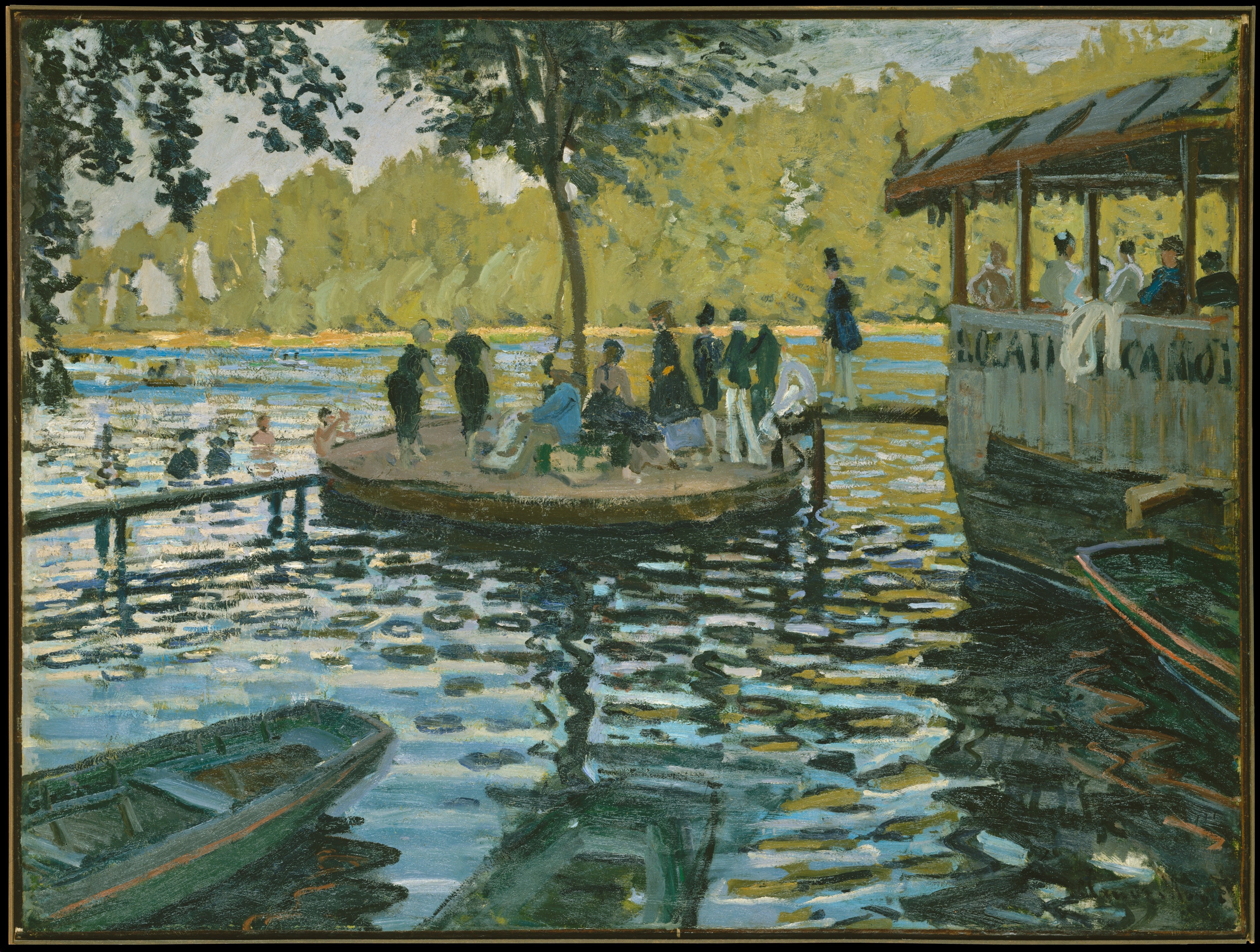Cœurage

Claude Monet: La Grenouillère (1869)
"We're bred as critics …"
Authoring requires more heart than I can muster some days. Draft manuscripts simply must be reviewed with empathy or they'd all be reduced to red pen scratchouts the first time through. Only a wide open heart can prevent cringe-caused muscle cramps. One simply must, or I simply must, read with a sympathetic eye, which might render me my most worthless editor. My work could not survive without generous initial interpretations. If I wanted to discredit it, I could sink the whole damned enterprise in seconds. I cannot seem to write with a vengeance or author with one, either. I engage with disturbingly transparent skin, as if my spirit suffered from circulation problems. I wear a sweater and thick socks, protecting myself from the often shocking encounter with the real world and her expectations. I must write from my heart and author from there as well. This simply seems fundamental. ©2022 by David A. Schmaltz - all rights reserved
I am taken by the root from which courage sprung, the Latin cor (meaning heart) and the French Cœur (also meaning heart.) I believe that Authoring requires just this sort of heart engagement, perhaps embodied by concatenating that original heart, Cœur, with a certain maturity, age, to produce a sense-word, Cœurage. This represents my sense of the attitude I must adopt in order to properly engage in my Authoring work. Yesterday, my latest manuscript followed me around all day without me managing to Proof a single page of it, for my ear seemed to be off. I could not quite catch the flow of the work. I could not hear its cadences. I could not make sense or derive meaning from it, as if I had written it in an unfamiliar dialect or an alien language. I could not muster the Cœurage to crack it. I recognized my deficiency and didn't let it bother me too much. Flow inevitable includes both surges as well as ebbs. I figured that on average, I was probably making reasonable progress even if I some days experience a distinct absence of requisite Cœurage. Tomorrow's always coming.
And then tomorrow's here. It brings the possibility for fresh understanding. I Proof my manuscripts for more than grammar. I proof them for the experience, for I have no sense of them until I read my way through each from start to finish, something I typically have not done until long after I've completed writing. I do not usually go back and read myself up to where I last left off when writing new sections. I quite deliberately presume continuity to be an emergent property, but I have not confirmed whether it was until I start from the beginning and stick with it clear through to the ending, until I've finished Proofing the work. This effort renders me as vulnerable as I ever feel, for I am powerless to change what I earlier produced, by which I mean that I must first accept what I then created before I can take any action to correct or improve it. My raw material stands just as I created it, buck naked and innocent as Hell, in other words, vulnerable. It requires tremendous Cœurage to face this music, to peer into these self portraits, which I'd lovingly produced including blemishes and all.
A seduction entices whenever I engage in my craft, an urge to produce work that's better than it is. Perfect prose describing an imperfect world. Perfect authorship to package less than perfect writing. Perfect promotion to protect my grand imperfection, but a sort of social impedance issue results. My world cannot be represented with regular shapes or precision fittings. Call mine more organic, more fractal, less precise. My work's impressionist painting and must mirror the many imperfections in my world or reduce itself to mere derivative portraiture. Original work should quite naturally appear messy and feature a few unfinished edges and awkward joins. Only a heartfelt reading can properly render my intentions, even to myself. If I could, I would induce Cœurage in my readers when they crack my material, such that they might experience it in the spirit which I originally intended. We're bred as critics but thrive on other terms. One learns a certain Cœurage or one disappoints them self.


